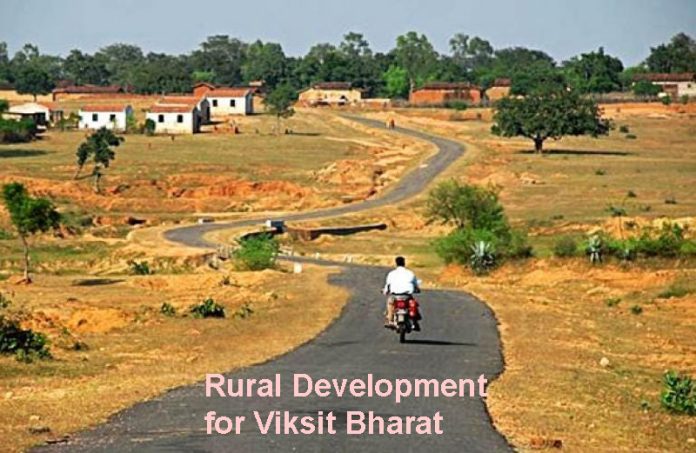As India aspires to become a fully developed nation by 2047, the call to focus on rural development becomes more urgent than ever. CAG GC Murmu’s recent assertion highlights a critical reality-India cannot achieve the vision of “Viksit Bharat” without addressing the development of its rural hinterlands. With over half of the country’s population residing in rural areas, the progress of these communities is inseparable from the broader goal of national development. India’s rural areas have historically faced developmental challenges, including inadequate infrastructure, limited access to education and healthcare, and insufficient governance mechanisms. Despite various Government initiatives aimed at rural upliftment, the decentralisation of power has not reached the grassroots level as intended. This lack of empowerment has stunted the progress of rural communities. As CAG rightly noted, rural bodies such as Gram Sabhas are yet to receive the importance they deserve within India’s federal structure.
India’s approximately 260,000 Panchayats and 7,000 urban local bodies are crucial for the effective implementation of Government schemes and for promoting sustainable development. These institutions are the closest to the citizens, and their ability to function efficiently can significantly impact the quality of life for millions. Unfortunately, many of these bodies face resource constraints, inadequate capacity, and limited autonomy, preventing them from achieving their full potential. Strengthening these local bodies involves building their capacity to manage resources effectively, adhere to proper accounting and auditing standards, and ensure transparency in governance. Murmu’s emphasis on the role of accounting and auditing is pivotal. Auditing ensures transparency, accountability, and economic efficiency in the execution of development programs. Local bodies must be equipped with the necessary skills and infrastructure to meet these standards, ensuring that they can raise resources independently and contribute meaningfully to national growth. Furthermore, the role of citizens, or Jan Bhagidari, cannot be overstated. Collective action by the people is key to driving national progress. Only by empowering rural communities and strengthening local governance can India realise its dream of becoming a truly Viksit Bharat by 2047.
Trending Now
E-Paper


